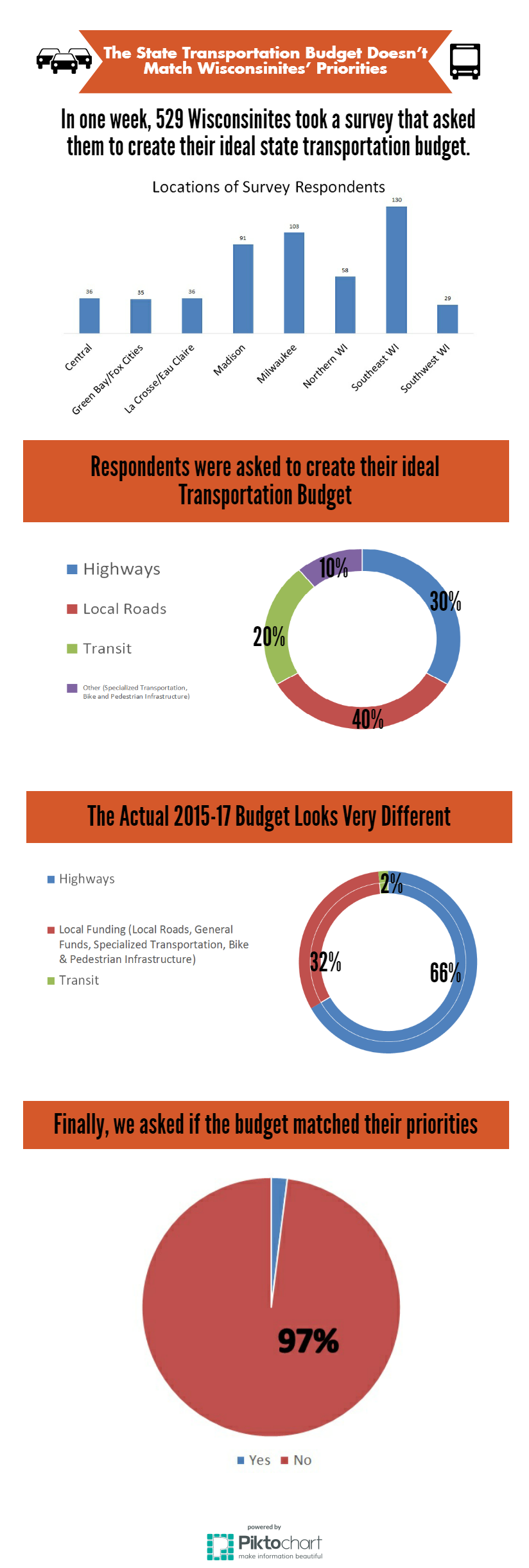The results of a survey highlight how the state’s transportation budget priorities are increasingly out of step with Wisconsinites’ needs and preferences. The informal survey, conducted by Sierra Club and its partners in the Coalition for More Responsible Transportation, asked more than 500 people across the state to create their ideal transportation budget, and had respondents compare their preferences to the 2015-2017 spending plan.

Ninety-seven percent of respondents said the last transportation budget did not reflect their values. Respondents called for more funding to meet local needs, like fixing local roads, expanding transit service or creating more biking and walking options. They also think Wisconsin spends too great a portion of the state budget on major highways.
These same preferences were reflected at a community-organized town hall in Waukesha by a transportation coalition that includes the Sierra Club and religious and community groups. The public hearing was to make sure that Senator Leah Vukmir and Representative Dale Kooyenga, both on the Joint Finance Committee and both representing people in Waukesha County, heard the transportation concerns of their constituents. The hearing drew very diverse participation from 61 people: riders, service providers, community groups, bus drivers, public officials and community members. The testimonies were powerful and some were very moving.
In addition to those who spoke at the town hall, the coalition released 1,600 petition signatures calling for a better prioritized transportation budget.
As state leaders debate the future of Wisconsin’s transportation system, advocates and community members encouraged legislators to support community-oriented, forward-thinking solutions that responsibly address the state’s transportation challenges.
Specifically, the coalition urges the legislature to rebalance Wisconsin’s spending priorities to better meet local needs by:
Applying more scrutiny to proposed major highway projects, and not giving the go-ahead to unneeded projects;
Increasing support for municipal and county governments to help restore local roads to good condition;
Adjusting specialized transportation funding levels to reflect the needs of those with disabilities and the growing population of seniors who are unable to drive; and
Restoring previous cuts and increasing transit funding by at least $34.3 million per year over the next 10 years, as recommended by the Governor’s Transportation Finance and Policy Commission in 2013.
Governor Walker said it better than we could in an interview with the Milwaukee Journal Sentinel in February:
Wisconsin might not need to build as many lanes of highways as it has in the past because of changing technology and work habits, Walker said. He noted driverless cars could be on roads in the near future and young people are increasingly choosing not to buy cars and relying on services like Uber and Lyft to get around.
"I think part of it is going to be looking ahead and determining whether or not there are better ways we can do those projects in the future...whether or not those bidding on those projects are able to deliver at the price that fits the needs of the taxpayers. So we want to make sure that we’re using every dollar wisely."